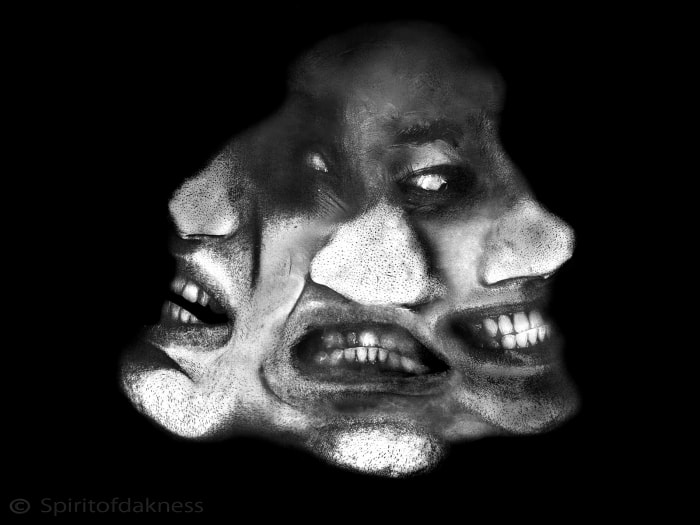
Pride can be a good thing when it’s about self-respect or being satisfied with a job well done, but we all know that pride has a dark side. We’ve seen it in ourselves and in others. The Bible tells us that the first sin ever committed was the sin of pride. An archangel named Lucifer became so full of himself that he wanted to be like God. He recruited followers and a third of of God’s angels swore their allegiance to him. Not content to lead a large rebel force of angels, the chief demon turned his attention to the first man and woman. He came alongside Eve and whispered, God knows that your eyes will be opened when you eat the fruit of the tree. You will become just like God–knowing everything, both good and evil.
The Devil effectively appealed to Eve’s pride, and he’s been effectively appealing to humankind’s pride ever since. It’s not hard to recognize in ourselves. The sin of pride has three basic characteristics:
- The most visible is vanity, a preoccupation with our appearance. We may not worship the mirror, but we devote a lot of attention to it.
- Beneath vanity lies a second characteristic of prideful people: stubbornness. Stubbornness causes us to shun correction. When someone points out an error, we evade or deny or blame someone else. This kind of defensiveness is particularly hard for God to penetrate.
- But there is a third dimension of pride that is even more dangerous. It can be summed up in the word exclusion. Pride is a choice to exclude God and people from their rightful place in our hearts.
Jesus said that the essence of a Christian lifestyle is to love God and to love others, but pride destroys our capacity to love. Ask yourself:
- How often do I tend to judge or condemn people rather than love them?
- How many times has my pride caused me to exclude someone rather than to embrace them?
- How often do I compare myself to others?
Jesus often talked about how pride impacts our relationship with God. He once told the story of two men who happened to be praying to God at the same time. One was a very religious man who compared himself to others and thanked God for making him superior to the people around him. The second man was a despised tax collector. In his prayer he acknowledged his sins and begged God to forgive him. Jesus said that it was the second man who went home reconciled with God. The proud will be humbled, and the humble will be honored.
Do you agree with Jesus that humility brings honor and pride leads to grief? Most of us don’t. We’ve been raised in a culture that has taught us from birth that the opposite is true. And when we look around, our eyes confirm what we’ve been taught. We don’t see the humble being honored–we see the proud being honored.
But perhaps we’re missing Jesus’s point. Perhaps the better question to ask is, “Who do I want to be honored by?” And if what’s most important to you is being honored by the people around you, then feel free to ignore Jesus’s words, because the honor he is talking about comes from God, not people.
But even for those of us who value humility, it’s hard not to give into pride. That’s because it takes many forms, and often it’s when we think we’ve got pride licked that it controls us in the worst way.
Let me give you an example. Occasionally I go on a diet, and what I’ve noticed is that after I’ve been on the diet for a day or two, I start looking at people differently. I see them stuffing their face with sweets and junk food, and I ask myself, “how could they do that to themselves? Have they no self restraint? Don’t they know that their body is the temple of the Holy Spirit?”
I get these kinds of thoughts even though these people are eating the same things I ate yesterday before I went on the diet, and the same things I’ll be eating again next week when I drop the diet. Which brings me to my problem: when I try to do good, I am intensely aware of everyone around me who is not putting out the same effort, and I silently (and sometimes not so silently) judge them.
Let me leave you with a thought that I hope you will take time to reflect on this week–a lesson I had to learn the hard way. Jesus once told the story of a prodigal son and his legalistic elder brother. What I’ve learned is that one of life’s greatest challenges is to stop being the prodigal son without turning into the elder brother.
